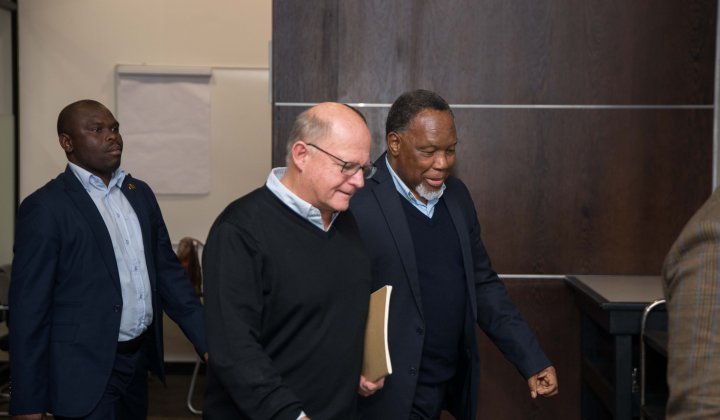Most business leaders are grappling with the mechanics of a hybrid workforce: managing the reality of co-ordinating remote and in-office teams. But there is a blind spot that almost every company is missing. There have been fundamental lifestyle priority shifts that workforces around the world have made, thanks to the life audits we’ve all processed during lockdown.
For many companies, the ripple effect is going to be a rude awakening.
A global existential crisis
It is estimated that 6.53-million people died from Covid-19, while 613-million people were infected by the virus. If you were not mourning the tragic loss of one or more family members or friends, or had to deal with the effects of long Covid, then two years of anticipatory grief would certainly have sparked a process of introspection and re-evaluation of this fragile thing called life.
Currently, we’re seeing a manifestation of this life audit in trends such as semigration, revenge travel and the concept of time millionaires, which in turn paved the way for workplace trends like the great resignation and quiet quitting. The first three trends can be attributed to a renewed YOLO (you only live once) attitude – travelling while you can and seeking a more balanced lifestyle. But these are just movements on the surface. They are feeding into an undercurrent that is growing stronger and has started to challenge, and erode, the bedrock of traditional corporate culture.
I have the privilege to work with senior leadership across different sectors and I see the same pattern emerging: an obsession to pick up from where we left off in 2019 while brushing aside any protestations. Some have reluctantly agreed to a hybrid way of working, while others are simply demanding that staff return, full time, to the office. The push-back has already started with some companies losing, not just talent in the lower rungs of the company, but in senior management, reducing crucial institutional memory.
This is a bellwether they are ignoring, and underestimating.
Labour laws shifting with the times
For the C-suite who don’t see the need to re-evaluate their management styles or company culture, they should note the rash of new labour legislation that supports a new way of working. It’s an acknowledgement that it’s not so much that people don’t want to work, they just want to work differently.
- Law: The right to disconnect
Country: Portugal
Date introduced: December 2021
Bosses may no longer message employees outside of contracted work hours - Law: Mandatory right to work from home
Country: Germany
Date introduced: November 2021
Employers have to offer a work-from-home option if the nature of the job allows it - Law: Working from home as a legal right
Country: Netherlands and France, with Portugal also considering
Date introduced: July 2022
Employers must consider employee requests to work from home (Netherlands) and employers who refuse must justify their reason (France) - Law: Remote working legislation
Country: Ireland
Date introduced: August 2022
Gives workers the right to request working from home
Post-pandemic company culture
While managers must ensure the operational dynamics of a hybrid workforce are functioning, there is a fundamental misunderstanding of the kind of flexibility workers really want.
Marcus Buckingham leads the ADP Research Institute, and has recently conducted a 27-country survey of thousands of workers on what makes them love (or hate) their jobs. When interviewing workers who were forced back into the office, he found that they were both the most and the least stressed. Interestingly, it was the same for remote workers. His assessment was that it depends on the person, rather than the location. “What people are really looking for isn’t flexibility of location. It’s flexibility of time,” he concluded. “All hybrid talk misses the fact that it’s not the geography or location. It’s the flexibility of being a whole human."
The biggest challenge, then, in terms of workforce management is to move from a location-centric mindset to a more human-focused mindset.
What the lockdown years have proved is that people can be just as productive, if not more, when they are given flexibility of time. It’s therefore less of a challenge for people to work remotely and manage their time, but rather more of a challenge for managers to adapt to a decentralised way of working: a new skill that was not needed before in traditional corporate culture.
Reassessing productivity. Embracing outcomes
One of the new concepts that almost no executives are interested in engaging with is the four-day work week (4DWW), even though South Africa is about to follow other countries around the world and conduct trials in 2023.
The 4DWW inevitably sparks debate about productivity. But this is another metric that the new world of working is challenging. As Stanford economist John Pencavel says, “We've taken up the assumption that our output is proportional to hours”, and therein lies another blind spot, and misconception: having workers in a physical space, for a set number of hours, equals guaranteed productivity.
“Productivity” needs to be redefined and separated from time and location-based metrics. Globally, companies are shifting to measuring outcomes and output, and more workers are opting for short-term, project-based contracts measured on task completion, rather than fixed salaries based on hours worked.
Management’s steep learning curve
Middle managers experienced the steepest learning curve during lockdown. Managing teams via video conferencing was never a necessary skill. But now with an inevitable hybrid future, all levels of leadership need reskilling.
There are many pitfalls in managing a hybrid workforce. There is not only the danger of a two-speed organisation (a disjointed workforce that fails to collaborate) but also ensuring that the more introverted workers don’t become “ghost workers”, and in tandem, ensure there is no “proximity bias” for the employees they see more often in-person.
The role of managers has traditionally focused on overseeing teams and projects to ensure work is completed properly and on time – in essence, project management.
But now the people-focused elements of their roles have become more important than ever. Just like shifting from a location-centric company culture to a more human-centric culture, managers need to focus more on different styles of people management.
A knee-jerk reaction to remote management during the pandemic was to use digital productivity monitoring tools subjecting employees to a new form of corporate surveillance.
Apart from only tracking keyboard activity – and not factoring in offline meetings, reading and research or other forms of non-digital work – digital productivity monitoring tools have received a backlash from workers who describe this form of scrutiny and surveillance as “demoralising, humiliating and toxic”. Cue a new flood of resignations.
The stereotypical qualities managers were traditionally celebrated for include being “assertive”, “driven” and “authoritative” – traits that imply the ability to accomplish tasks and ensure that a team meets deadlines.
In contrast, words that now describe a preferred management style include “empathy”, “connection” and “flexibility”.
Teuila Hanson, the chief people officer at LinkedIn, captured the human capital zeitgeist by saying, “Company culture is swiftly evolving, and to keep up, organisations must innovate and think progressively. We have this singular opportunity to create the culture and circumstances that will allow each employee to do their best work and to lead their best lives.”
For executives who have adhered to the career mantra of “working their way up the corporate ladder”, this all seems a tad touchy-feely, hence the belief that their company requires no introspection, let alone a culture reassessment.
My counter-argument is that they can dig their heels in all they want, but if there is already evidence that senior leadership are quitting their jobs for more flexible and accommodating pastures then, in the next few years, they will gradually discover that their company is no longer attracting, or retaining, the skills and talent they desperately need. Leadership is at a crucial inflection point. Don’t ignore the winds of change.
Dion Chang is the founder of Flux Trends. For more trends as business strategy, visit www.fluxtrends.com





